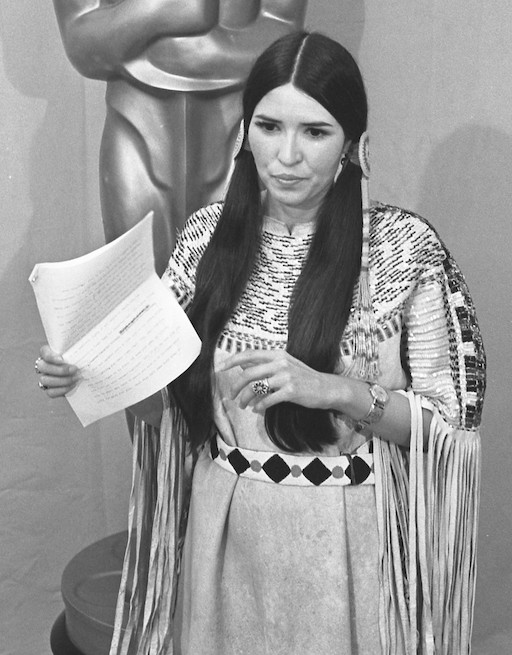When Sacheen Littlefeather declined the best actor prize on Marlon Brando’s behalf at the 1973 Academy Awards to denounce Hollywood’s portrayals of Native Americans, the audience booed her.
Sacheen Littlefeather, an Apache activist and actress who turned down Marlon Brando’s request to accept the best actor Oscar in 1973, drawing jeers onstage in a move that tore through the show’s facade and highlighted her criticism of Hollywood for its portrayals of Native Americans, has passed away. She was 75.
On Sunday, the Academy of Motion Picture Arts and Sciences made a statement about her passing. It was not immediately clear what caused the death.
Only a few weeks had passed since the Academy had expressed regret to Ms. Littlefeather for how she had been treated at the Oscars. Ms. Littlefeather stated in an August interview with The Hollywood Reporter that she was “stunned” by the apologies. She remarked, “I never thought I’d live to see the day I’d be hearing this, experiencing this.
One of the most well-known disruptive moments in Oscars history occurred when Ms. Littlefeather, then 26 years old, held up her right hand that evening inside the Dorothy Chandler Pavilion in Los Angeles, making it abundantly clear to the award presenters, the audience, and the millions watching on TV that she had no desire to ceremoniously accept the shiny golden statue.
After being met with a chorus of jeers and some boos from the audience, Ms. Littlefeather stood at the platform and stated, “I ask at this moment that I have not intruded upon this evening, and that we will, in the future, our hearts and our understandings, will meet with love and kindness.”
She was the first Native American woman to take the stage at the 45th Academy Awards, wearing a shimmering buckskin outfit, moccasins, and hair ties. She was 26 years old. However, the outrage and condemnation were swift: According to show producer Marty Pasetta, security officers had to hold actor John Wayne because he was so agitated that he threatened to assault the stage.
In August, she stated to The Hollywood Reporter, “In 1973, I stood at the podium alone.”
According to her website, Ms. Littlefeather, whose birth name was Marie Cruz, was born on November 14, 1946, in Salinas, California, to a father who belonged to the White Mountain Apache and Yaqui tribes in Arizona and a French-German-Dutch mother. She adopted the name Sacheen Littlefeather after graduating from high school to “honor her natural background,” according to the website.
The Native American takeover of Alcatraz Island, which started in 1969 as a show of defiance against a government they claimed had long violated their rights, was described as a section of her website.
Early in the 1970s, she began her acting career at the American Conservatory Theater in San Francisco. She would later appear in movies like “Winterhawk” and “The Trial of Billy Jack.”
The evening before the ceremony, Mr. Brando, who had been nominated for his portrayal of Vito Corleone in “The Godfather,” called Ms. Littlefeather. She had been intending to watch the awards ceremony on television.
Through her neighbor, director Francis Ford Coppola, the two had gotten to know one another. In the event that he won, Mr. Brando asked her to decline the prize on his behalf and gave her a speech to read just in case.
Ms. Littlefeather arrived at the ceremony with little knowledge of how the evening would proceed and with approximately 15 minutes remained in the program.
Ms. Littlefeather was holding papers when an Oscars producer recognized her and warned her that she would be arrested if her remarks continued for longer than 60 seconds.
Then Mr. Brando triumphed.
Ms. Littlefeather also discussed the federal government’s standoff with Native Americans at Wounded Knee during her speech.
Photo Credits: https://commons.wikimedia.org/
